General
H.E Ssekandi launches Prof. Suruma Book on Advancing Ugandan Economy
Published
11 years agoon
![[Front-Row]Assoc.Prof. Okello Ogwang welcoming H.E Edward Kiwanuka Ssekandi, Prof. Ezra Suruma and Mr. Edward Gaamuwa](https://news.mak.ac.ug/wp-content/uploads/2019/12/field_image_welcoming-suruma.jpg)
At the climax of the historic book launch held on Tuesday 23rd September 2014, the audience comprising people with different political ideologies, public, business and private sectors, development partners, the academia, students and the media applauded the author-Professor Ezra Sabiti Suruma for presenting to Ugandans and the world at large, a well written and researched political history and economic evolution of Uganda.
This audience that filled the renowned Makerere University Main Hall and Gallery to capacity was nothing short of spectacular. They upheld the author’s point of view that there was a strong correlation between political stability and the rate of economic growth. They agreed with the author that foreign aid would never lead to the development of Uganda; appreciated the author for reiterating the need to involve the communities in the implementation of the rural development strategy; thanked the author for giving direction on a reformed pension and social security sector; and together with the author wished for a well managed oil sector that would lead to job creation and prosperity for all.
In his book, Advancing the Ugandan Economy: A Personal Account published by Brookings Institution Press, Washington, D.C,2014, Professor Ezra Sabiti Suruma, an accomplished academician who served government diligently, highlights that it is because of the transformed political environment that Uganda has experienced stability and growth. He also shares very difficult times in Uganda’s history and the reforms that followed, identifies problems in various sectors and proposes viable solutions given his research background and wealth of experience. Professor Suruma remains optimistic that as the democratic environment evolves, Uganda will become more stable; and emphasizes that good governance is critical in a country’s social and economic transformation.
In his 197-page book, Professor Ezra Sabiti Suruma, a former Senior Lecturer of Economics at Makerere University; former Director of Research in Bank of Uganda; Minister of Finance from 2005 to 2009; and Senior Presidential Adviser on Finance and Planning in Uganda-not only provides an insider’s account of dramatic policy shifts in Uganda leading to stability and growth, but also expresses hope for a better Uganda. This distinguished son of Africa was also a visiting fellow at Brookings with the Africa Growth Initiative from 2010 to 2011.
In the foreword, Henry Krabbendam, a Professor Emeritus, Covenant College Georgia and Founder, Africa Christian Training Institute-Uganda states that the book gives Professor Suruma’s account of the remarkable policy changes that occurred in Uganda from 1986-2012 as well as his vision for the future of his country. He notes that the primary purpose of the book is to demonstrate that African countries can achieve economic stability and sustain rapid growth when they meet at least two interdependent conditions. He however emphasizes that they must establish a stable and secure political framework, rooted in moral integrity, as well as unleash the entrepreneurialism of the populace, facilitated by a free and democratic society.
Focusing on a better Uganda, the hopeful Professor Ezra Sabiti Suruma, a respected economist and academician who served the government diligently decries the growing unemployment levels, but envisions Uganda at full employment. His philosophy of full employment is premised on a well managed oil sector and its correlation with job creation and socio-economic transformation.
“…I continue to believe that the country cannot and should not try to sweep the problem of unemployment under the carpet. With the impending oil wealth, I believe that the country really can afford to pursue full employment. Uganda needs to address the needs of its expanding youth population for adequate housing and decent jobs,” further reads the extract on page 194.
Officiating at the launch of this admirably well-written and researched book, the Vice President of the Republic of Uganda, H.E Edward Kiwanuka Ssekandi congratulated Prof. Ezra Sabiti Suruma upon extending the boundaries of knowledge in economics and politics, and equally commended him for not only awakening Ugandans to social, political and economic issues of our time but also providing solutions these problems.
“I have the pleasure to officially launch Prof. Ezra Sabiti Suruma’s book-Advancing the Ugandan Economy: A Personal Account. I commend it to all Ugandans as a prescription that will save Uganda and take it to greater heights,” said the Vice President of Uganda, H.E Edward Kiwanuka Ssekandi amidst applause from a captivated audience.
At the memorable book launch Pastor Laban Jjumba who was invited to say a prayer thanked the Almighty God for blessing the author with the gift of life and wisdom. He also gave God the glory for His Servant’s book launch as hosted by Makerere University.
In the same spirit, the Vice Chair, Uganda Debt Network, Ms. Christine Nantongo said that the organisation was proud to be associated with the Prof. Suruma’s publication. “We are aware of the compelling content in this publication and its potential to contribute to Uganda and Africa’s social and economic transformation.”
The Acting Vice Chancellor of Makerere University, Associate Professor Ernest Okello Ogwang welcomed the audience to Makerere University and commended them for filling up the Main Hall and the Gallery to capacity as Professor Ezra Sabiti Suruma, a distinguished leader and a former Senior Lecturer of Economics at Makerere University (1973-75 and 1979-81) launched his publication.
“Makerere University is indeed proud that you chose this Hall as the venue for the launch of your book Advancing the Ugandan Economy – A Personal Account for if its walls would speak, it would tell many a tale. We are also proud that the narrative of this book had its origins in Makerere University, during your tenure as Senior Lecturer at Makerere University. We warmly congratulate you and take great pride in your achievement, and commend you for literally bringing it home,” remarked Associate Prof. Okello Ogwang.
Assoc. Prof. Okello Ogwang, Deputy Vice Chancellor (Academic Affairs)represented the Vice Chancellor.
He applauded the author, Professor Ezra Sabiti Suruma (an insider) for taking a bold step to dedicate time and resources to share with Ugandans and the world at large an insider’s account of dramatic policy shifts in Uganda that led to stability. He then encouraged other insiders who were in attendance to share their own accounts with Ugandans and the world at large.
The Ag. Vice Chancellor also thanked the discussants namely Hon. Dr. Mary Mugyenyi, Gen. Salim Saleh Akandwanaho, Mr. Andrew Rugasira, Hon. Nandala Mafabi, and Mr. Edward Gaamuwa for accepting to be part of the intellectual discourse so that the current political and economic reforms in the quest for economic independence seek to build upon the demands in an interrelated, interconnected and global environment.
At 2:30pm, the author- Professor Ezra Sabiti Suruma took to the podium to address eagerly expectant audience comprising several dignitaries, Senior citizens, Ministers, Members of Parliament, intellectuals – both young and old, students and the media.
“The Financial Sector Reform: Negotiating with the Bretton Woods Institutions, I believe is one of the most interesting chapters for students and professors. As the Vice Chancellor said, I am speaking from firsthand experience,” remarked Prof. Suruma in reference to chapter nine of his book.
With nostalgia, Prof. Suruma thanked Makerere University for welcoming him, and allowing him to launch his book, in the very institution where the journey started in 1979 when he was Senior Lecturer in the then Department of Economics. He informed the audience that the organizers had proposed to launch his book in a different location, but by God’s providence, he was equally happy that they were all gathered in the Makerere University Main Hall.
Prof. Ezra Sabiti Suruma
Recalling their boldness and how their decision to form a 3rd force impacted on the transformation of Uganda, Professor Suruma advised the youths and students to remain focused and determined.
“Then we were young people and a laughing stock. People said that they had dominant political parties, and that we as young people could not do anything. One of the main points, I want to put forward is that when we entered politics, we were responding to a difficult environment. Although they considered us hopeless, we had remarkable achievements. I encourage you, young people to know that ideas are powerful,” he said.
The author pointed out that he escaped death narrowly when soldiers came looking for him, but surprisingly a voice responded that he was not in the area, and by God’s grace the soldiers did not bother to check. Professor Suruma will remain eternally grateful to the person who chose to inform the soldiers that he was not in the area, although the person has never revealed his identity to date.
“To the young people, If God determines that you will live, you will live. Do not fear to organize,” he emphasized amidst applause from the audience.
In his hypothesis, it is because of the transformed political environment that Uganda has experienced stability and growth. In the last 27 years, the country has been going forward because there is a remarkable correlation between the type of government and the rate of economic growth. Although the history of economic growth is attributed to macro-economic principles, Professor Suruma argues that more attention should be given to political stability. The transformation in political stability made it possible to pursue major financial reforms in Uganda.
“Looking at the data on page 22, with Uganda’s economic growth rate rising to 3.6%, there is no doubt in my mind that the increase in economic growth is correlated with good governance,” he emphasized.
Being a key figure in the economic and political transformation of Uganda, Professor Suruma is delighted with the reforms that resulted into the liberalization of the foreign exchange sector. He also encountered serious challenges during his tenure at Bank of Uganda including lack of capacity and accountability as well as independence of the Central Bank and the Ministry of Finance. He also shared a scenario where some key government officials wondered why the Bank of Uganda would require a budget! Professor Suruma is equally glad that they took bold decisions that resulted into a reformed banking sector and an independent Bank of Uganda.
He highlighted the struggle for the Uganda Commercial Bank. He referred to it as a bank without money, with the most pressing problem being illiquidity of the bank. Realising that the people would deposit money, but encountered a lot of difficulty in withdrawing, Professor Suruma considered the problem and tried to find out where the money was going.
“I found out that branch managers were lending independently of the centre. Top managers did not know what the branch managers were doing, the latter were practically autonomous. Worse still, the branch managers were lending money but not recovering much of it. That was the ultimate source of the disaster, “he said.
Professor Suruma made an incredible decision, and the bank was liquid within a week, a milestone that his colleagues referred to as the “Suruma Effect.” Listening to his presentation, it was crystal clear that Professor Suruma who had ensured that the Uganda Commercial Bank was profitable as of 1996, did not support the World Bank position of privatizing the bank, but he later realized that he could not win.
The author received around of applause from the audience when he pointed out that the pension and social security reforms are a societal obligation. “I appeal to our citizens to struggle for a time when every Ugandan citizen will afford basic needs and be respected regardless of their economic status,” he said.
In his book, the optimistic Professor Suruma tackles the promising oil sector and its effect on job creation and the social and economic wellbeing of Ugandans. “Chapter 21: Job Creation and Housing Demand in Uganda-An Innovative Synergy is my small contribution to the debate on creating employment,” remarked the author.
The author dedicated the book to his father, Sulumani Barilanwa who made sure that he went to school-even though their village had no school to go to; his mother Esiteri Keiganiza whose unflinching disciplinary rigor set him on the straight path toward good; and to the martyrs and fighters for human freedom and justice everywhere.
To the Vice Chancellor of Makerere University, Professor John Ddumba-Ssentamu who was out of the country on official duty, the author, Professor Ezra Sabiti Suruma presented an autographed complimentary book with a special message.
“ To Prof. and Vice Chancellor, Dr. Ddumba Ssentamu, in remembrance of our time together at Makerere University, 1979 -1981.Thank you for your friendship.”
Discussants:
Hon. Mary Mugyenyi, Patron, Joshua Mugyenyi Foundation said that she could identify with what the author had written especially the history and economics of this country. She however pointed out that although decentralization had taken services to the people, it had shortfalls which should be addressed. She also observed that privatization though good had shortfalls such as the prioritization of foreign firms over local ones. She also noted although SACCOs are good, there is an urgent need to regulate them so as to guarantee the safety of their members’ savings. She emphasized that corruption in Uganda is not caused by poverty and appealed to Makerere University to conduct an informed study on who is corrupt and why they are corrupt.
Gen. Salim Saleh Akandwanaho, Presidential Advisor on Security, and formerly, Minister of State for Microfinance thanked the author for according
him the honour of discussing his rural development strategy and its impact on Uganda, which he; Gen. Salim Saleh has been implementing as a loyal officer. He noted that community information systems and access to finances were crucial in advancing the rural development strategy and also saluted H.E President Yoweri Kaguta Museveni for re-enforcing the military in the rural development strategy. Gen. Salim Saleh appreciated the title of the book, especially its faith in the future. He nevertheless drew applause from the audience when he emphasized that his dealings in the privatization of the Uganda Commercial Bank were only influenced by the desire to “Ugandanise” the bank. He asked that authors to publish more books on the economy, politics, and environment so that Uganda continues to move forward.
Mr. Edward Gaamuwa, Chief Executive Director-ACLAIM Africa Limited.
Mr. Edward Gaamuwa, Chief Executive Director-ACLAIM Africa Limited congratulated Dr. Suruma for his incisive and sometimes blunt book and for being bold to call a spade a spade. He appreciated the author for pointing out that Ministers and people in high places had succumbed to corruption. He however disagreed with the author that corruption was a result of income insecurity but was rather convinced that corruption is a result of greed. The discussant decried the “short termism” in managing pension funds and emphasized the need for a long term approach. He added that social security is not a luxury, but a key factor in sustainable development.
Hon. Nandala Mafabi, formerly Leader of Opposition in Parliament reminded the audience that during his tenure, privatization had indeed put the President and Parliament on a collision course as Dr. Suruma correctly pointed out in his book on page 73. Hon. Nandala recalled that he moved the motion in the House not to Hon. Nandala Mafabi, former Chair, Public Accounts Committee.
Mr. Andrew Rugasira, Chief Executive Officer, Good African Coffee Ltd appealed to the youth and students to read the book and fashion their ideologies around it. He detested the high rate of borrowing and its adverse effects on investment and development. He noted that access to capital was a major problem whereby young people have ideas, but very few have access to capital. He stressed that our hope in economic transformation was within our midst, and further encouraged young people to come up with innovative strategies.
Mr. Andrew Rugasira,Chief Executive Officer, Good African Coffee Ltd
Wrapping up, Professor Suruma thanked the congregation for sparing their valuable time to participate in the book launch. “I have been humbled by your presence and contributions.”
Professor Augustus Nuwagaba, who moderated the discussion, thanked Makerere University for producing Professor Suruma – a wonderful son of Africa. He equally congratulated the Vice Chancellor and staff of Makerere University for producing products that can effect change the world over.
The Uganda Debt Network, which envisions a prosperous Uganda with sustainable, equitable development and high quality of life of the people, sponsored the book launch.
Written by: Ritah Namisango, Makerere University
You may like
General
Mastercard Foundation Scholars embrace and honour their rich cultural diversity
Published
14 hours agoon
February 18, 2026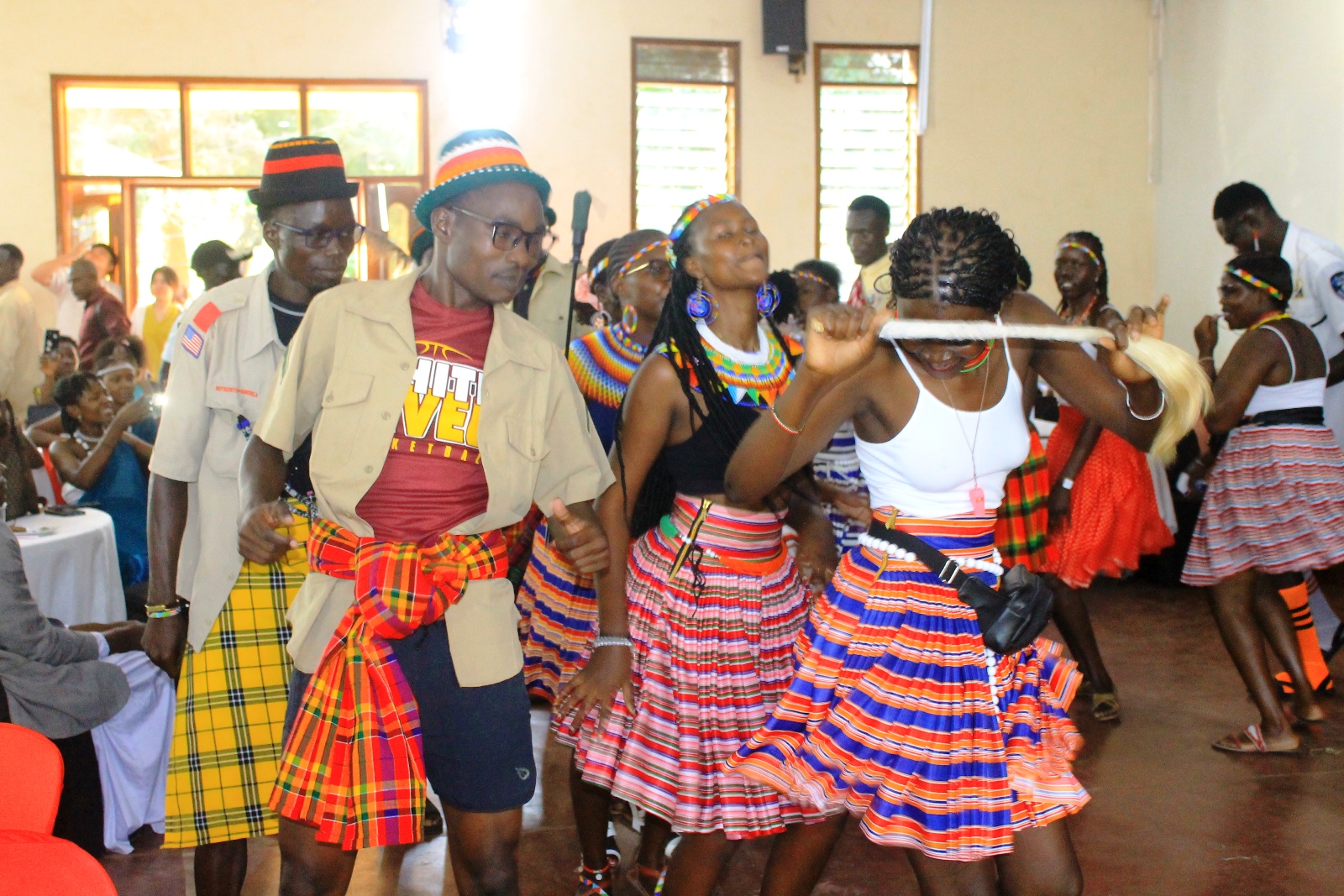
On the evening of Friday, 13th February 2026, the Scholars of Mastercard Foundation embraced the new semester with enthusiasm and celebration, showcasing their rich cultural diversity at the annual cultural dinner. This event not only fostered a sense of community but also highlighted the importance of cultural exchange and understanding among the scholars. The purpose of the cultural dinner is to foster unity in diversity within the Scholars community and to enable young people to appreciate and respect each other’s cultural differences.
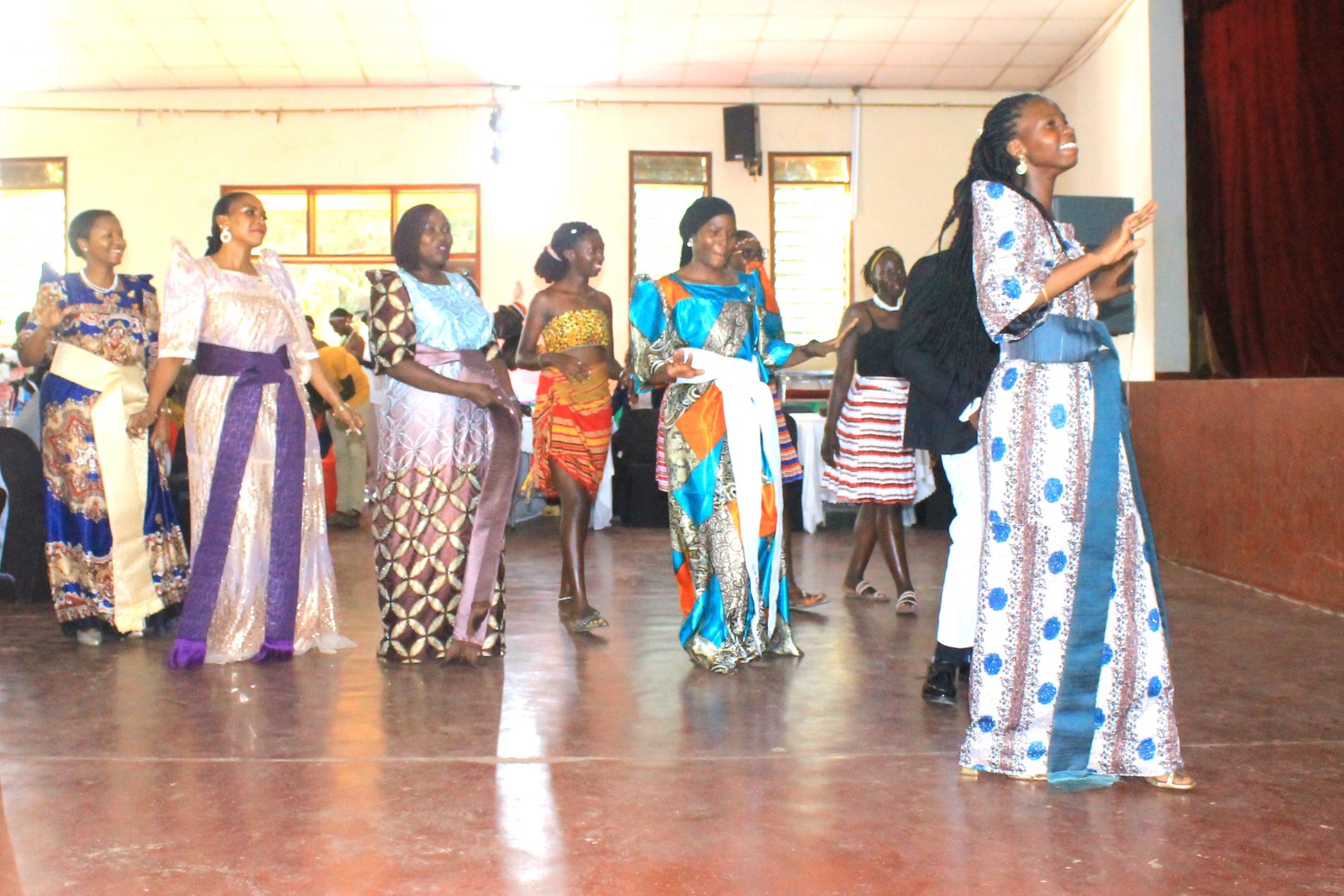
The Mastercard Foundation Scholars community at Makerere University is a vibrant tapestry of countries, cultures, and backgrounds. In recognition of this richness, the Program team has proposed organising an annual cultural dinner to kick off each new semester. This event aims to achieve several important objectives:
- Promote mutual understanding and cross-cultural appreciation among Scholars.
- Celebrate and highlight the unique cultural identities within our community.
- Encourage confidence and creativity through a dynamic talent showcase.
- Foster a sense of unity and excitement as we embark on the new academic semester together.
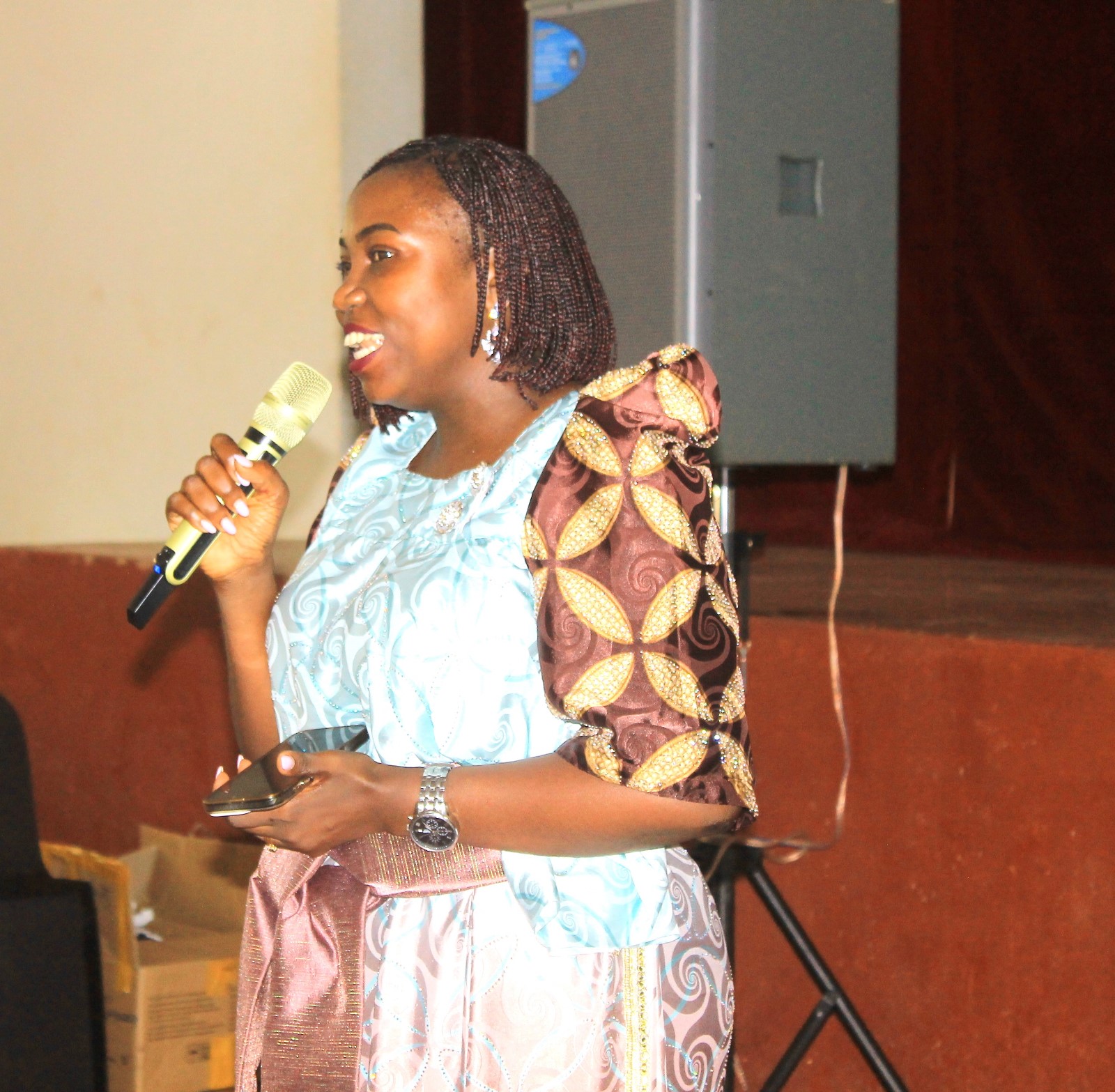
During the event, the Scholars proudly showcased their diverse cultures through a vibrant display of traditional attire, engaging dances, delectable dishes, and meaningful expressions in their native languages. The event showcased a rich tapestry of cultures, including the Baganda from Central Uganda; the Banyankore, Bakiga, Batooro, and Banyoro from Western Uganda; the Acholi from the North; the Karamojong from the Northeast; and the Basoga and Bagisu from the Eastern region, among many other indigenous tribes in Uganda. Additionally, attendees enjoyed cultural performances from South Sudan, Rwanda, and the Democratic Republic of Congo, celebrating the unique heritage of each community.
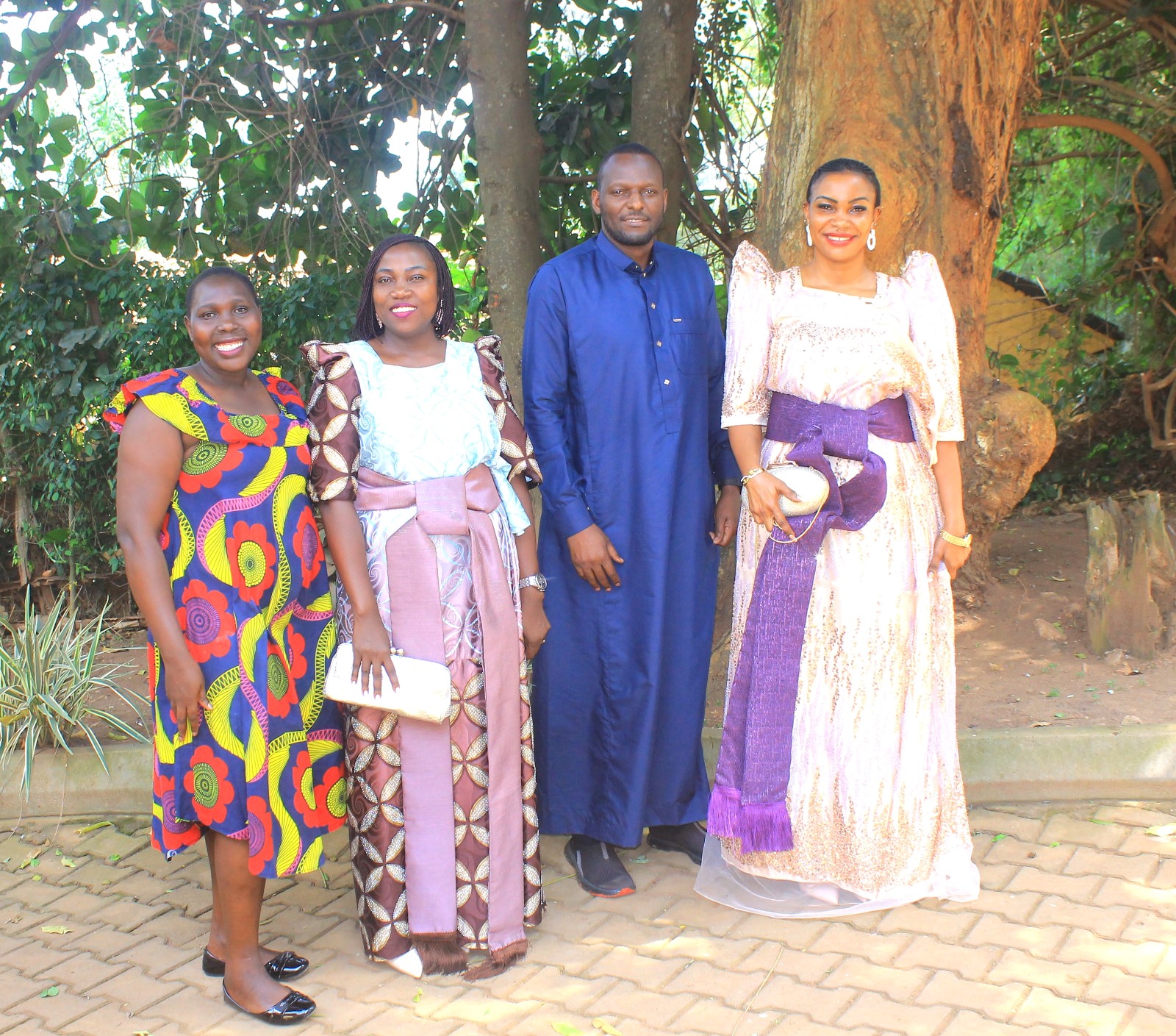
The event also featured a vibrant showcase of cultural attire, accompanied by traditional songs and dances. Attendees enjoyed cultural dress modelling, engaging performances, art displays, and interactive quizzes, culminating in exciting prizes awarded to outstanding performers. This diverse array of activities contributed to a rich celebration of creativity and cultural exchange.
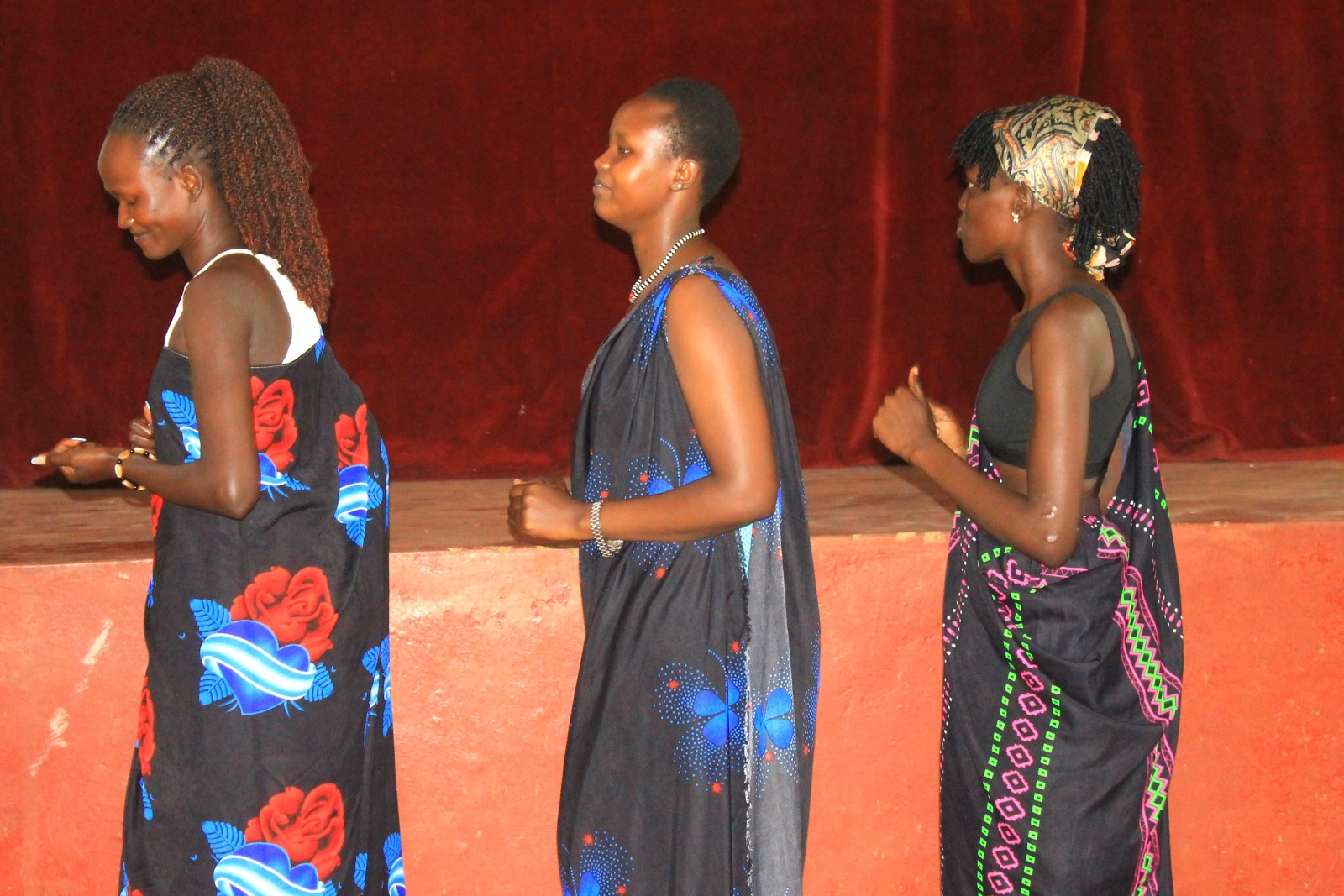
The Mastercard Foundation Scholars Program at Makerere University is committed to fostering holistic development, community building, and leadership among Scholars. At the start of each semester, the Program Team hosts a cultural dinner to reconnect the Scholars community, share key Program updates, and create an inclusive space to strengthen belonging and engagement. The cultural dinner is a critical platform for raising awareness of the need to appreciate and respect cultural diversity.
Bernard Buteera is the Principal Communications Officer for the Mastercard Foundation Scholars Program at Makerere University.
More Photos from the Dinner
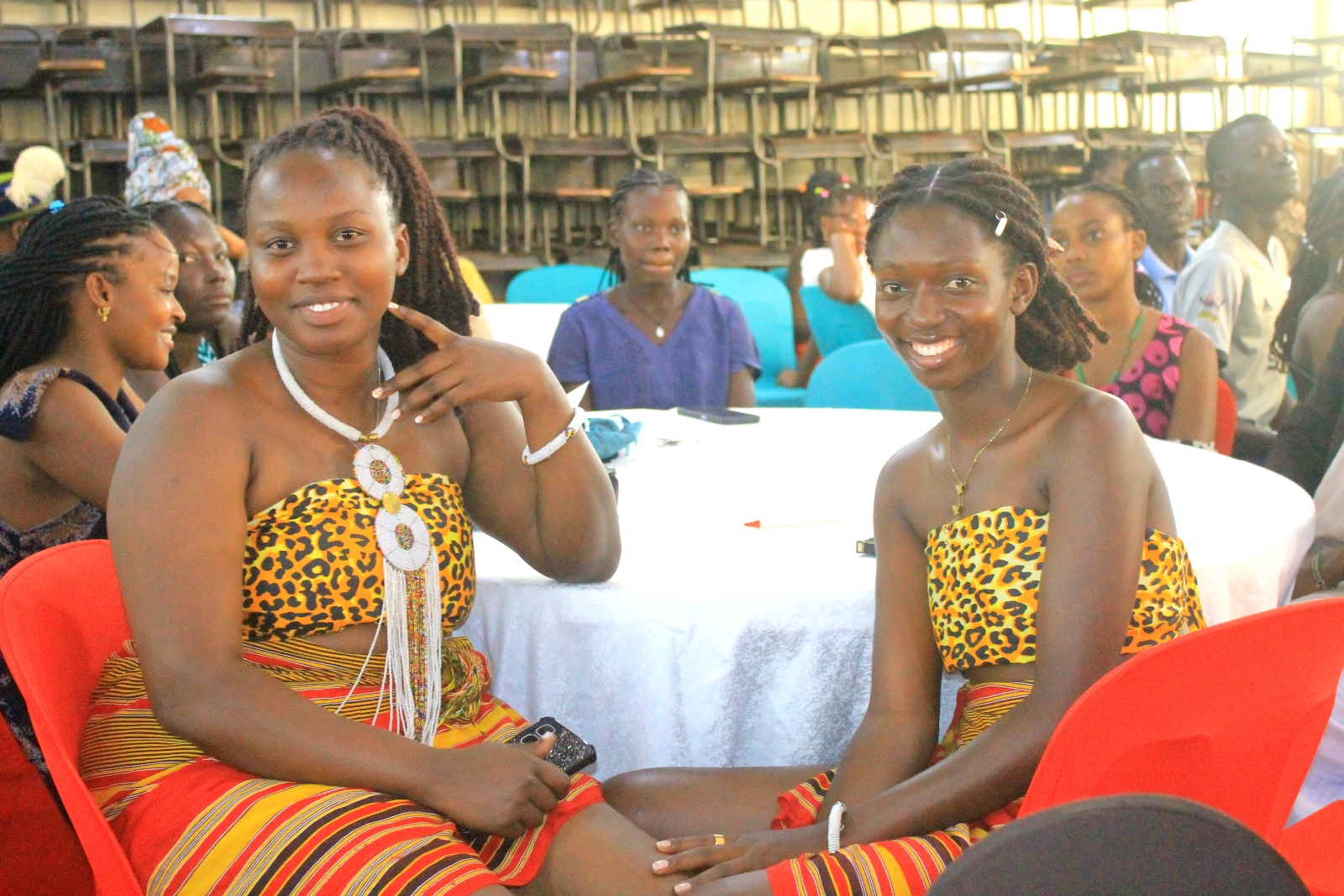
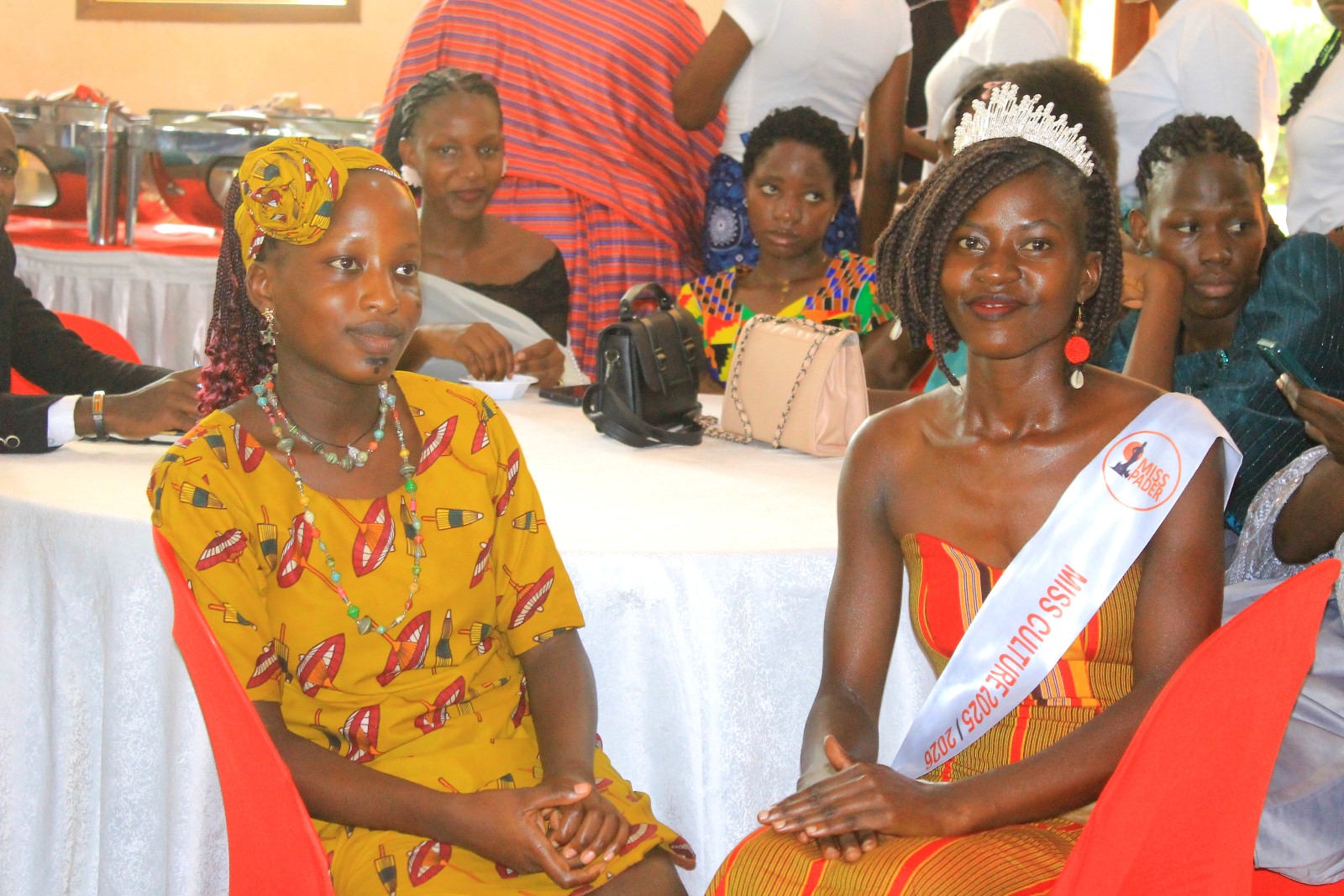
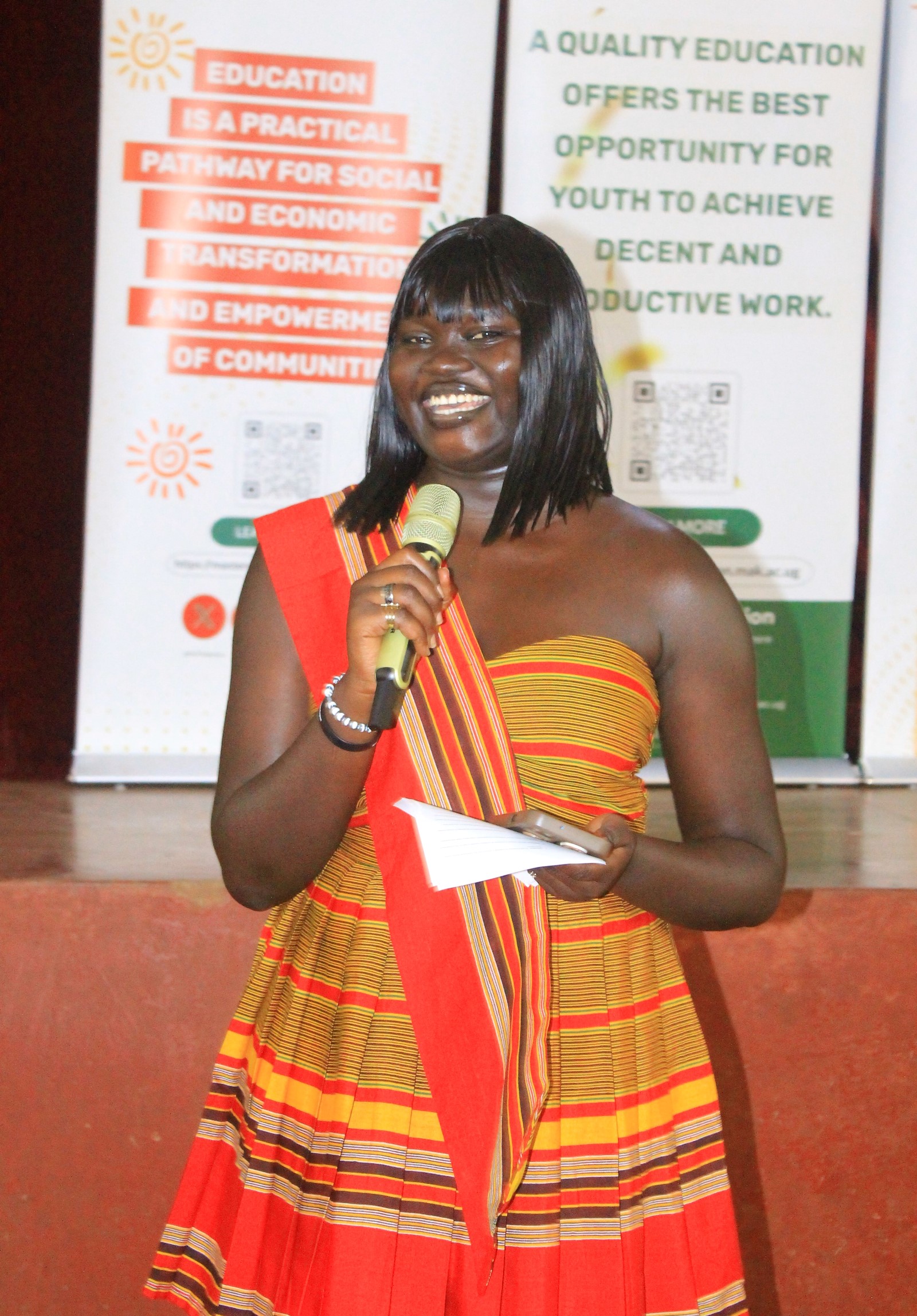
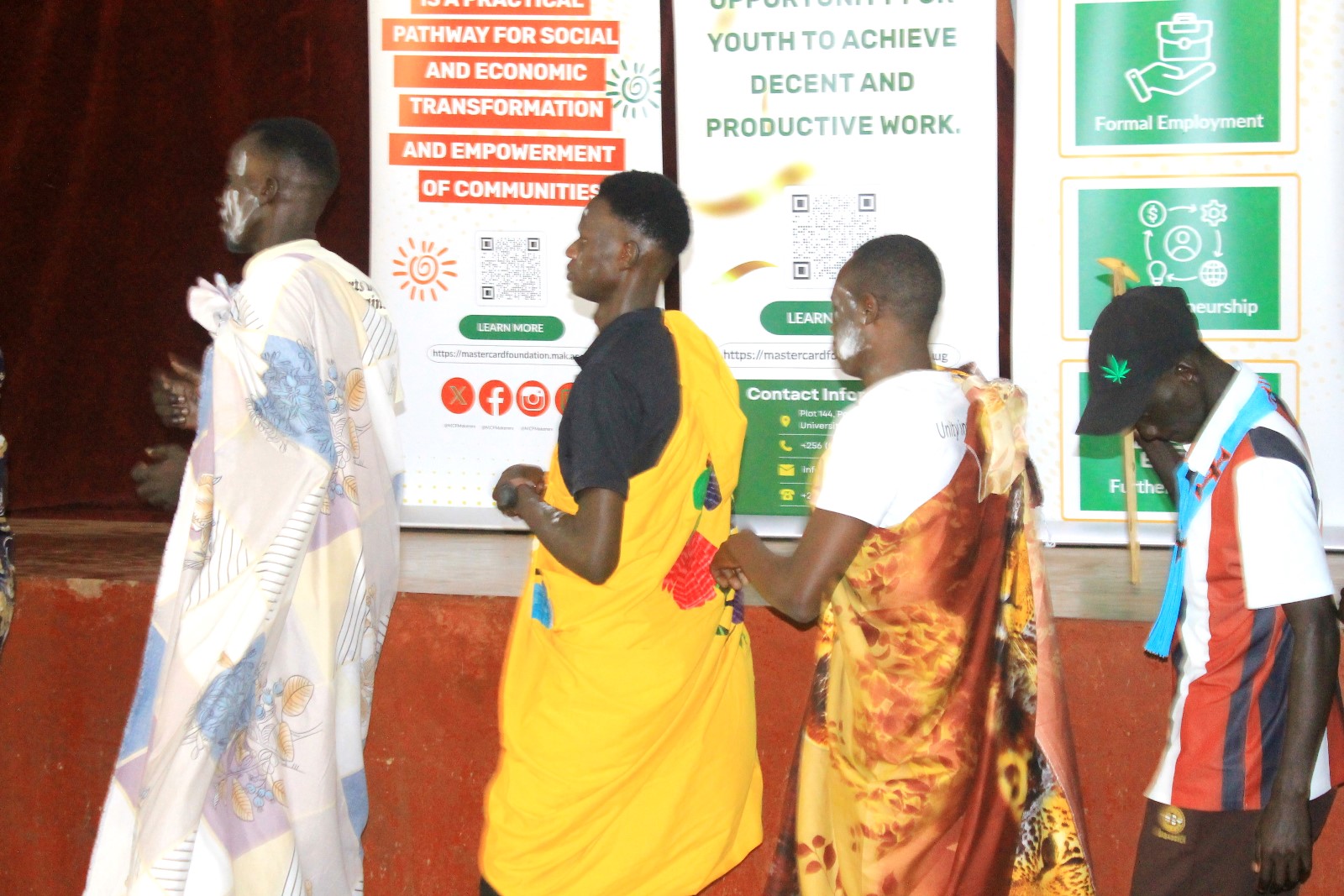
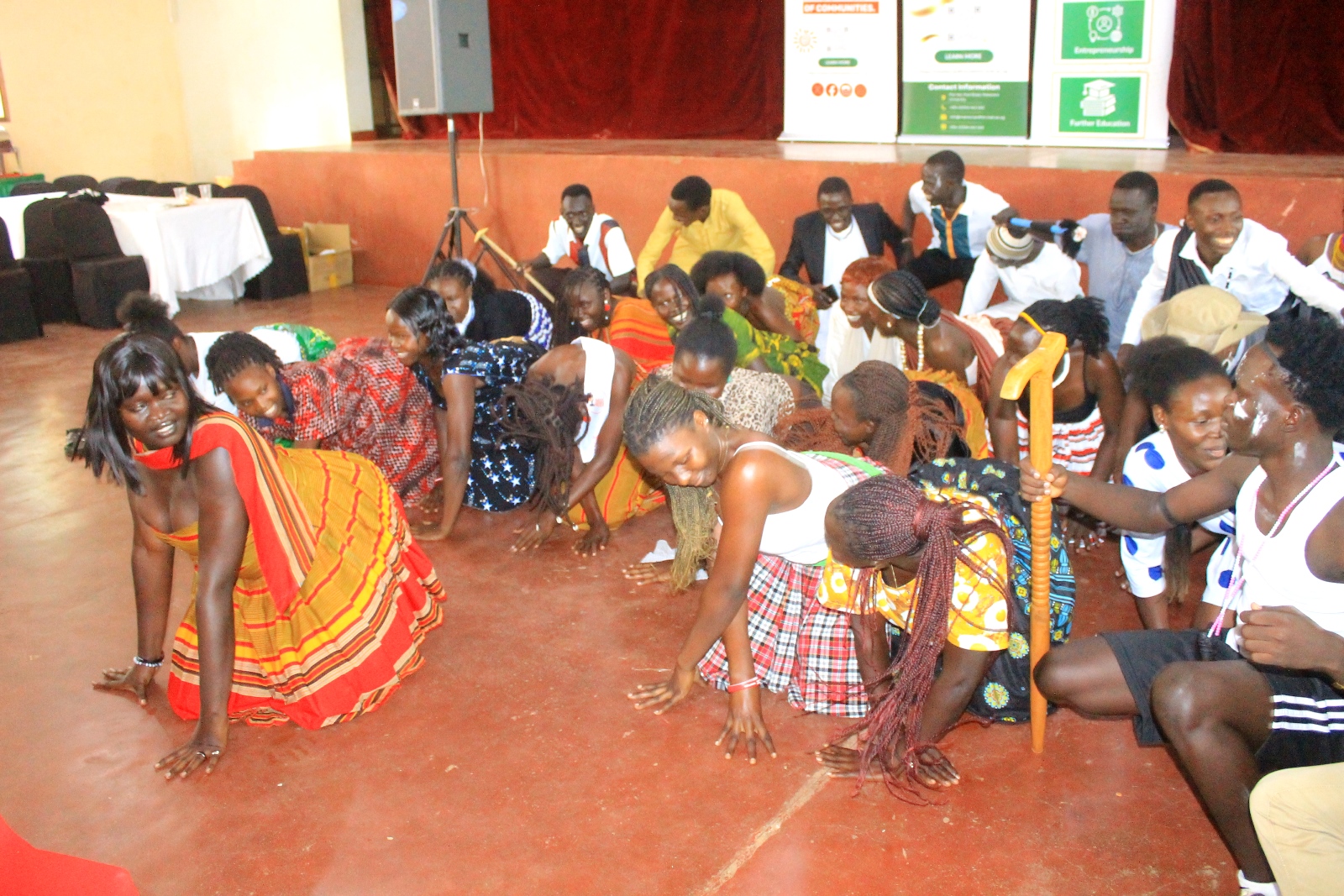
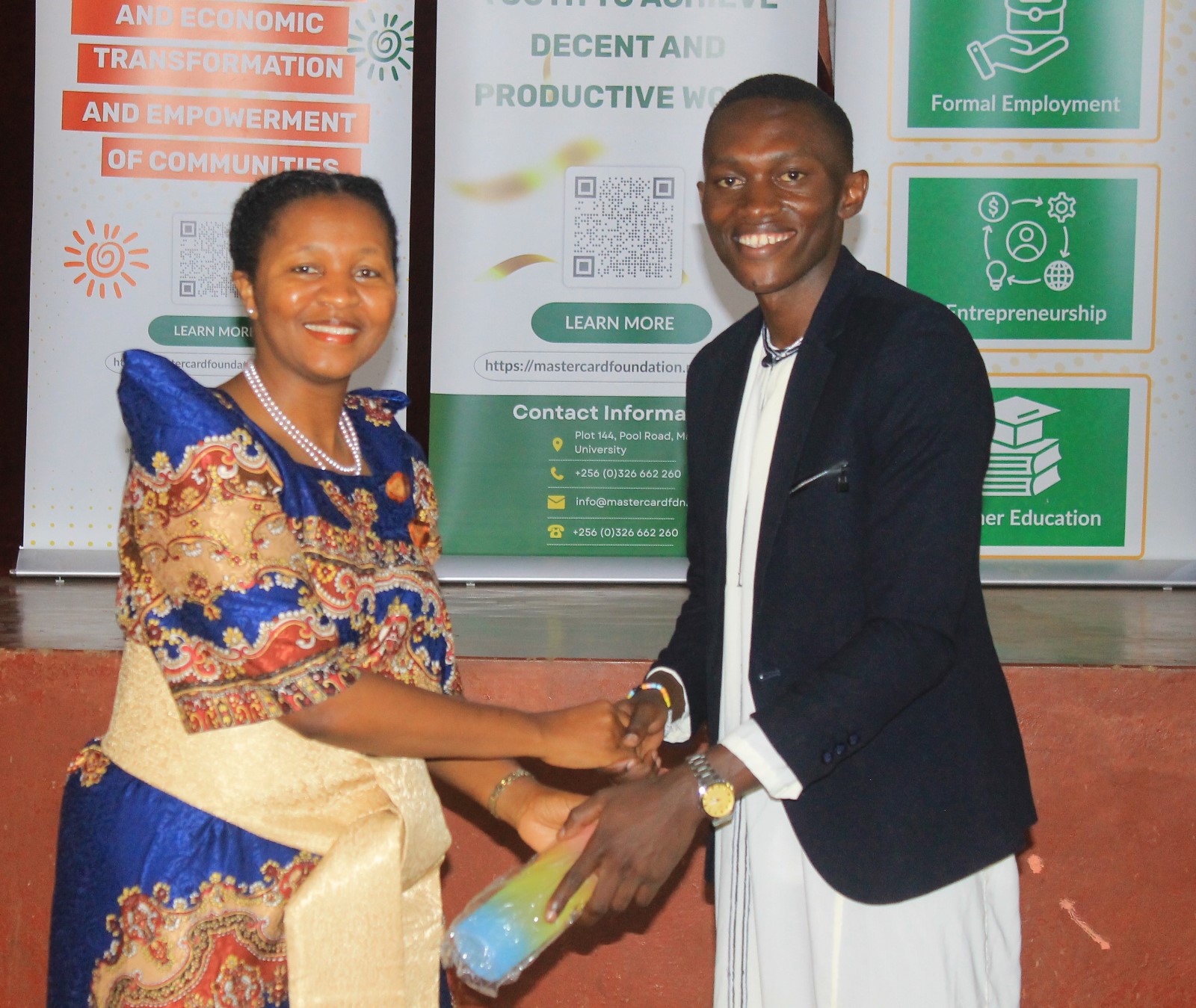
General
Support Staff Trained to Promote Safety of Students and Stakeholders
Published
16 hours agoon
February 18, 2026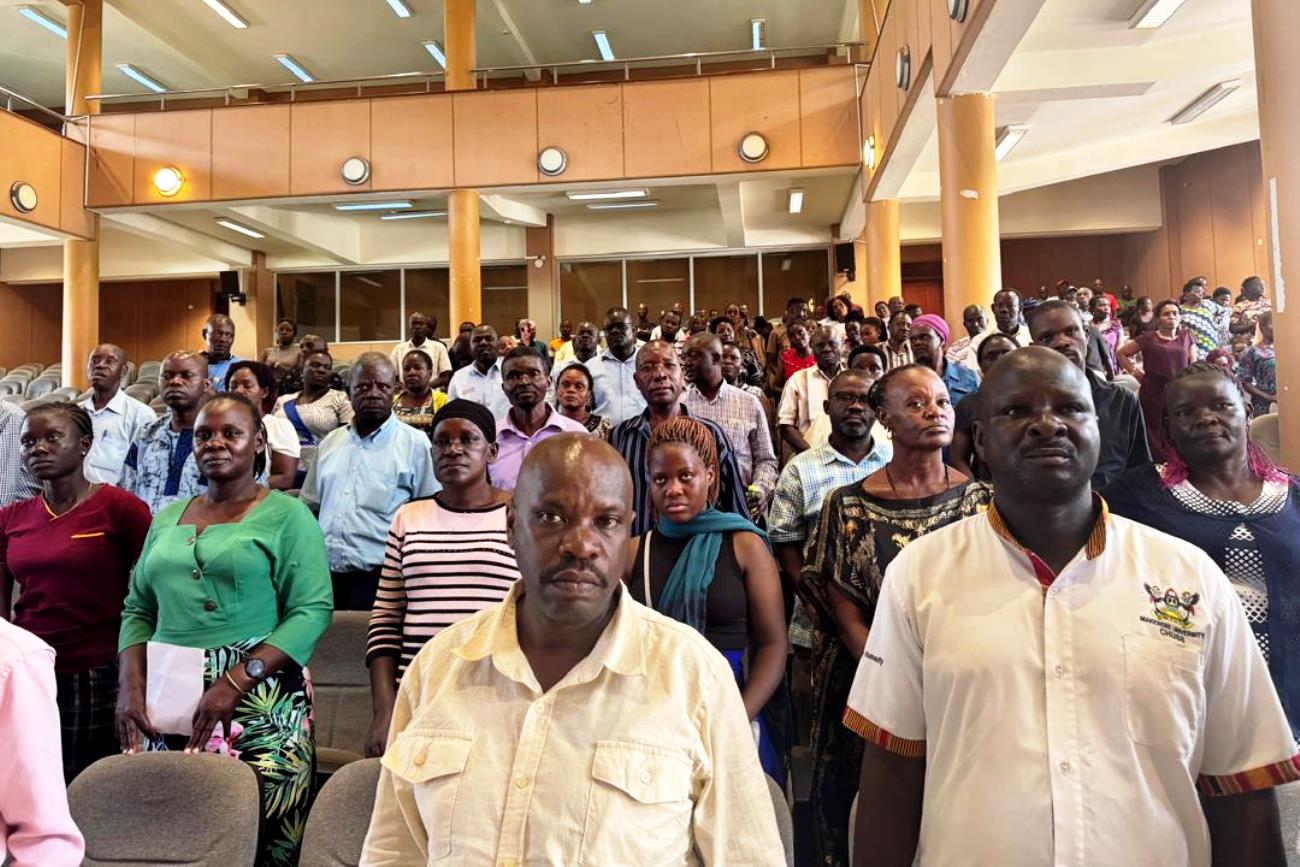
The degree of attentiveness was at its peak in the Yusuf Lule Central Teaching Facility (CTF) Auditorium as Ms. Janet Nabukeera addressed support staff during a Safeguarding and Inclusion training. Her words were firm, direct and reflective. Ms. Nabukeera, the Deputy Human Resource Officer in charge of Performance and Payroll, emphasized that a negative attitude in the workplace creates a toxic environment where colleagues feel hesitant to collaborate or share ideas.
“Avoid unnecessary confrontations with colleagues because jealousy and anger destroy more than they build. When you hold grudges at work, you slowly burden your own heart and mind. Stress can take a toll on your health and productivity. Safeguard yourself by choosing peace, love yourself first and extend that same grace and respect to others.” Ms Nabukeera, cautioned.
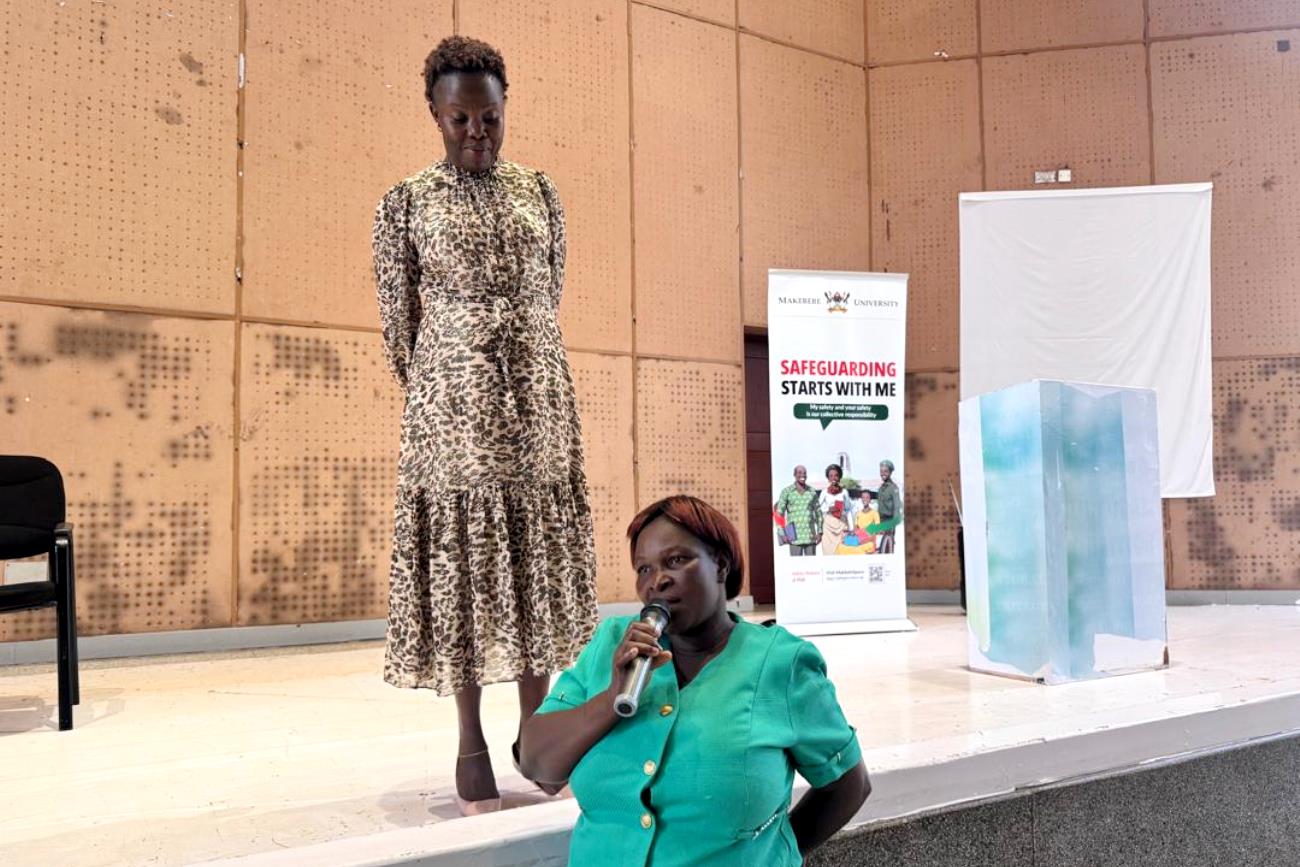
The training attracted over 300 Support Staff Members, including Security Personnel, Cleaners, Hall Attendants, Administrative Assistants, Librarians, and Laboratory Support Teams from across the University.
In his remarks, Dr. Rodney Rugyema, the Acting Principal Warden, urged staff to have a positive attitude towards their jobs and encouraged them to ensure that students, fellow staff and visitor’s feel safe, respected and protected.
“You are the eyes and ears of the University, while you may not deliver lectures, you are often the first to notice when something is wrong. So you have to promote an environment free from bullying, discrimination, neglect and intimidation. You have to ensure secure hostels, well-lit walkways, functioning locks and safe laboratory environments,” Dr Rugyema, said.
Makerere University has a duty of care to do no harm and promote the wellbeing of all students, staff, and other University community stakeholders. It seeks to enhance the learning environment to make it more secure, inclusive, and ethically sound for all stakeholders.
The Makerere University Safeguarding Policy lays out the University’s framework for embedding viable safeguarding measures into its ethos and all institutional activities and processes to: Identify, detect, and swiftly act on safeguarding risks; prevent the occurrence of harm; provide mechanisms for reporting all allegations or incidents that have occurred; respond appropriately to all reported incidences; and, continuously monitor, evaluate and learn from practices and experiences of managing safeguarding concerns.
“Safeguarding is not only for lecturers or University Management, it is everyone’s responsibility, If you have someone mistreating you, or you come across any risk, do not suffer in silence report through the MakSafeSpace,” Dr Rugyema, said.

The MakSafeSpace is the e-reporting platform complimenting the other University traditional reporting channels. It is an inclusive platform that provides for confidential modes of reporting safeguarding risks and incidences.
As the session concluded, there was a renewed understanding among participants that safeguarding is a collective duty. From the security guard at the gate to the cleaner in the Hall of Residence, it was clear that every staff member contributes to creating a safe and respectful learning environment.
To involve and create opportunities for students and staff members with disabilities, Light for the World Uganda trained the support staff to become inclusion champions.
Mr. Musa Mwambu, the Disability Inclusion Advisor at Light for the World Uganda, called upon staff to remove barriers limiting the full participation of students and colleagues with disabilities, in line with the UN Convention on the Rights of Persons with Disabilities.
“Just like any other person, people with disabilities have the right to education, health, and protection. Society has the duty to remove barriers that block participation. When barriers are removed, disability no longer limits opportunity,” Mr. Mwambu noted.
Drawing from his own lived experience as a person with a disability, he shared how access to the right support systems enables him to communicate effectively and perform daily tasks.
“It is about putting the right conditions in place to participate fully in society. We need multi-stakeholder collaboration to remove barriers and achieve an inclusive society,” he said.
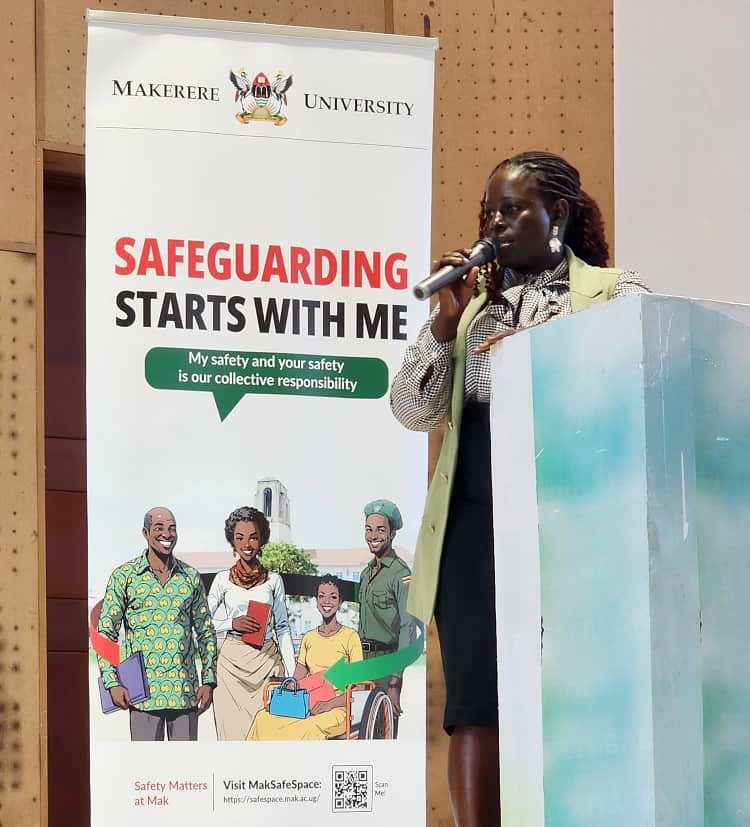
Justine Namuddu, the Support Staff representative on the Makerere University Council, thanked the organizers for the insightful workshop. She reminded fellow staff that Makerere University is a home for everyone and urged them to take care of it.
“Fellow members, as you carry out your duties, ensure that you observe both emotional and intellectual safety. Before sharing information, first verify whether it is true. Safety is being at peace with yourself and with others,” Namuddu emphasized.
She also encouraged younger staff members to take advantage of educational opportunities provided by the University, noting that those who wish to continue with their studies may apply for tuition waivers.
The training concluded with reminders on professionalism and accountability. Staff were encouraged to consistently use the Biometric Attendance Management System to capture attendance accurately. With biometric clock-in devices installed at reception areas across the Main and Satellite campuses, the Directorate of Human Resources can monitor attendance in real time, while staff can keep track of hours worked.
General
For Youth by Youth – Call for Second Cohort Applications
Published
1 week agoon
February 10, 2026By
Mak Editor
For Youth, By Youth is a global, youth-led movement committed to fostering conscious leadership and global solidarity as pathways to meaningful and lasting impact. Developed by 36 university students across 18 countries, this movement builds a network of engaged young leaders shaping a more just and equitable world.
BENEFITS
What You’ll Receive:
- $2,500 scholarship for community action research
- Mentorship & wellness coaching
- Training in Storytelling, Responsible AI & Youth-led Participatory Action Research
- International conferences & global network
- 3-Year Journey: Individual → Community → Institutional Transformation
Application Deadline: 20 Feb, 2026
See downloads for details
Trending
-

 Agriculture & Environment2 weeks ago
Agriculture & Environment2 weeks agoFrom Adversity to Excellence: The Inspiring Journey of Makerere’s Best Science Student, Esther Ziribaggwa
-

 General1 week ago
General1 week agoAptitude Exam (Paper 1) Results for the Mature Age Entry Scheme 2026/2027
-

 Health2 weeks ago
Health2 weeks agoDr. Samalie Namukose and the Quiet Work of Making Nutrition Count
-

 Research2 weeks ago
Research2 weeks agoCall for PhD Student Fellowships under H-DATA
-

 Health1 week ago
Health1 week agoHow Jimmy Osuret Turned Childhood Trauma into Evidence for Safer School Crossings
